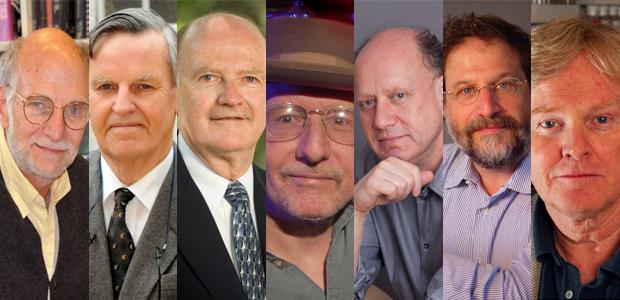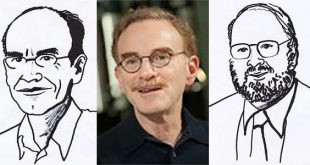The winners have helped us to better understand how our body clock ticks, what drives spinal cord development, how our immune systems work and ways we can give it a boost.
Along with their new logo, the Gairdner Foundation has announced the winners of the 2012 Canada Gairdner Awards.
Famous for picking future Nobel Laureates – one of last year’s groups was recognized by both organizations in the same year – the awards recognize the early work of medical researchers through a process that’s as international, as the winners themselves.
“I think it’s the quality of our adjudication process and the care with which we carry out that final debate as to who should be honoured in this year,” Dr. John Dirks, President and Scientific Director of the Gairdner Foundation told Science-Fare.com. Nearly 80 Canada Gairdner Award winners have been summoned to Stockholm since they were first handed out in 1959 – many still have the chance to, too.
In addition to a $100,000 prize, the recipients will be celebrated in Toronto this fall and each recipient will also be celebrated in their own, home country.
This year’s international awards were handed out to researchers who helped us understand our body’s clock, how our spine forms and some of the underlying mechanisms driving our immune system.
For Thomas Jessel – who won for his research in helping us understand the genetic mechanisms that drive spinal cord formation and communication – it was a passion he first cultured in graduate school, more than 30 years ago.
“I became interested in the way that sensory information from the outside world is fed into the central nervous system,” Jessel, who’s currently a researcher at Columbia University, told Science-Fare.com. “The first place that happens is the spinal cord – like the sensations of pain. The information from the world comes into the spinal cord and up to the brain.”
“From that point, I became interested in how the spinal cord and moved from the sensory to the movement side of it,” he added.
The winner of the Canada Gairdner Global Health Award – which recognizes the importance of public health in developing countries – was Brian Greenwood, from the London School of Hygiene and Tropical medicine.
Most famously, it was Greenwood who surmised and proved malaria deaths can be prevented simply by using insecticide-treated bed nets – by a third! He also evaluated two vaccines for preventing meningitis and pneumonia, after he linked these diseases with childhood death rates in Africa.
The winner of the Canada Gairdner Wightman Award – which recognizes leading medical research carried out by a Canadian – was the University of Alberta’s, Lorne Babiuk.
Babiuk – who’s also the University’s VP research – has spent his career researching and generating vaccines and has studied the underlying mechanisms that drive transmission of infections between animals and humans.
A complete list of winners and their research can be found here.
Science Fare Media will be speaking with each of the winners when they converge in Toronto, this fall. Like our Facebook page or follow us on Twitter @ScienceFare so you don’t miss a beat.
 Science Fare Media Science News – Upgraded
Science Fare Media Science News – Upgraded


